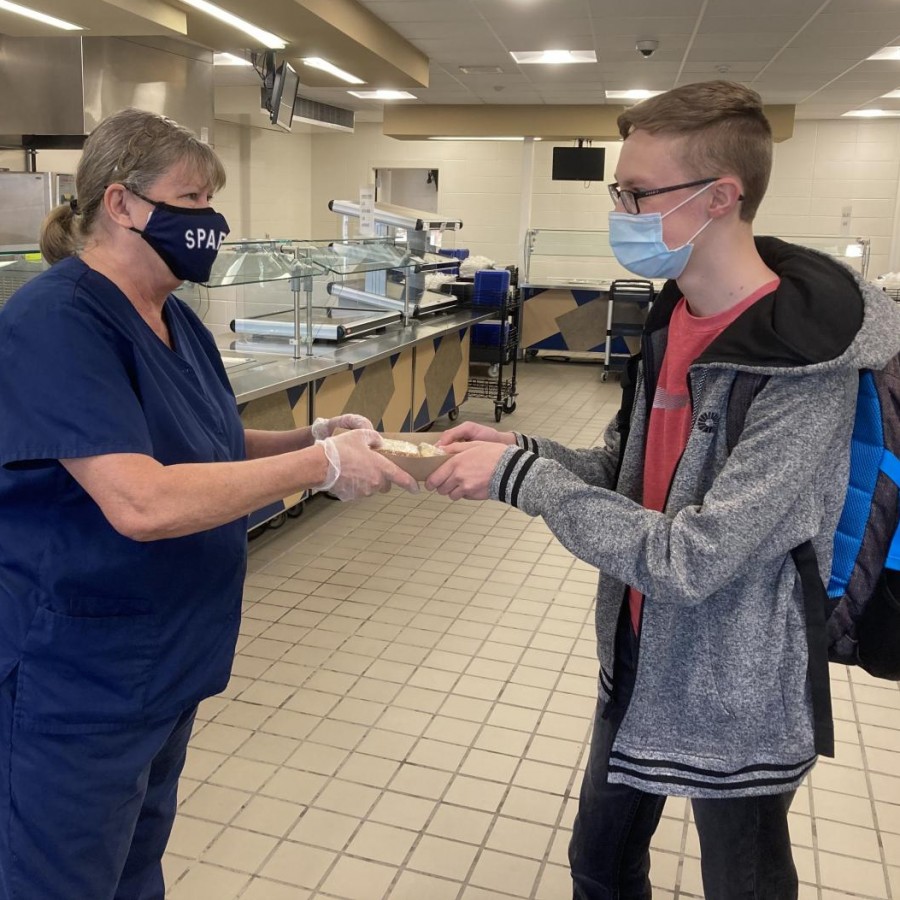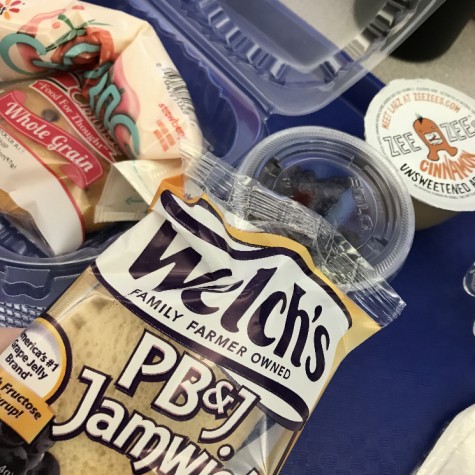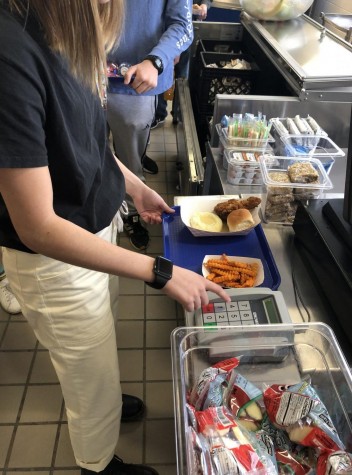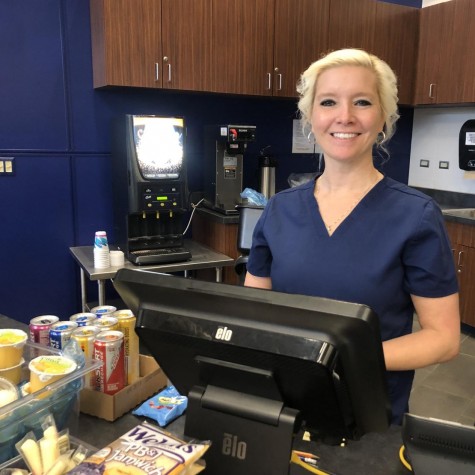My mother has joked for some time now that I will need to choose which college I attend based on dining services. As time goes on, though, I am realizing that this joke is becoming my reality.
I still remember the first week I went gluten-free, five years ago. My mother had decided my sister and I should avoid gluten after she experienced good results eliminating it from her diet.
A week later when we attended a family reunion a day’s drive away, I convinced my mother to let me eat a dinner roll. And the next day passed with no issues.
Then came our third and final day of the trip. I woke up not feeling well, but I did not feel sick so I did not say anything. I had a non-gluten-free muffin for breakfast.
It was around noon when we began our drive home. Fifteen minutes in, I experienced the sharpest and severest pain in my abdomen I have ever remembered feeling. It worsened whenever I moved, so I tried to sit still in the back of a van for six hours, wincing every time we hit a bump.
Once we reached our destination I experienced several other symptoms related to gluten intolerance. I spent the following days and weeks recovering.
After that incident, I can count on one hand the number of times I have consumed gluten. Almost all of those were accidental. On top of my gluten intolerance, I am dairy-free too.
Food restrictions are a serious issue many ‘normal’ people face on a daily basis. More than 20 percent of the population of the United States and other developed countries deal with a food intolerance or allergy and countless more deal with other restrictions for religious or health reasons.
Focusing specifically on students, up to eight percent of teenagers and young adults deal with food allergies and countless more deal with other dietary restrictions.
The Pleasant Valley Food Service is doing their part to help with dietary restrictions. They are required by the United States Department of Agriculture to provide food options that accommodate any dietary restriction, provided students fill out a diet modification form.
It goes a lot farther than that, though. The wonderful folks on the other side of the cafeteria line work hard to provide for and please everyone. Just last week, I walked into the cafeteria to find a gluten free sandwich (just like I always order it) waiting for me. When they serve walking tacos, they also offer tortilla strips alongside the usual Doritos.
However, there are still many students who struggle with finding food they can eat on the menu. For junior Lauren Puthoff, finding gluten-free and dairy-free options in the cafeteria has been challenging. “I really wish when buying a meal they would give a substitute for something instead of milk,” she lamented. “The box lunches have sandwiches with bread and the salad bar has meat with breading on it.”
This could be solved by working with those who keep the cafeteria running smoothly. If they know your needs, they can ensure that you have something good to eat.
There are some things I believe could be improved upon in the PV school district. For example, the Spartan Safe Snack List, a list of healthy items that elementary school students can bring to class for various events, may leave students with dietary restrictions excluded.
For example, four of the fifteen item categories contain gluten and five separate categories contain dairy. This means a gluten-free and dairy-free student has only around a 40 percent chance of being able to eat a snack another student brings, or a 60 percent chance of feeling excluded.
Fortunately, the list expires a little less than a month from now. That gives school officials time to modify it to encompass new rules and snacks that allow for all students to take part in festivities, whether that is through providing an alternative for students with dietary restrictions or providing a list specific to each classroom as necessary.
Sophomore Alyssa Gauss knows what dealing with allergies is like in elementary school; she was allergic to milk and eggs. “The list is very limited and [students] wanting to bring snacks to school, especially… on birthdays, are very restricted on what they are able to do,” she said. “It would be nice to have a larger list that still makes sure everyone is safe.”
The issues in the PV school district are not just at the elementary school level. When I moved here prior to the start of my sophomore year, the high school served pizza at the New Student Get Together event. I made sure to let them know of my gluten and dairy intolerances beforehand.
When I arrived, they pointed me to a small salad they had ordered without dressing. Instead of eating the dry salad, I watched everybody else eat pizza.
I get it, though. Providing for dietary restrictions can be hard, especially if you are not aware of all the ways to modify a menu. Pleasant Valley is taking a great first step by providing at least some form of food for all students; however, I believe there is more that could be done.
Students in college are also struggling with finding food they can eat. This, combined with risk-taking tendencies, may be a reason why they are at a higher risk for fatal allergic reactions. Imagine college students – who may not be used to advocating for themselves – taking risks with their health, uncertain of what the results of eating a food would be.
So if students are more likely to take risks, why are not all colleges working to help them? Why is my mom’s joke coming true and we have to choose our college based on dining services? Why is it that out of several thousand colleges in the United States, only a small percentage report having an allergy-friendly station?
Students should not have to choose their college primarily based on their need for dietary accommodations.
It is unrealistic and unfair to expect these students to cook for themselves on a college campus, especially if they are required to pay for a meal plan. The dining commons is one of the best places for socialization as well as a quick, convenient and nutritious meal. Having to plan and prepare for meals differently than other students socially and nutritionally punishes those with restrictions.
I have eaten on eight different campuses throughout my college search. At only three did I feel like I would be safe eating there for four years of my life with enough variety and convenience to stay sane. And only one was an enjoyable experience with safe but also delicious food.
It is time for colleges and universities to step up their game and better accommodate food allergies and other dietary restrictions.
For some colleges, this includes working with students to provide easily accessible food with clear labeling of all products and thoroughly training food service employees on acceptable allergy protocol. Or perhaps revising recipes to reduce allergens and providing a safe zone for students to get items without cross-contamination.
Other colleges should consider utilizing an app that simply and accurately shares menus with all allergens. And for the love of all the students with food allergies, provide a dessert option that can be enjoyed in the company of friends.
It takes a considerable amount of effort and resources to be able to provide for a wide variety of food restrictions. However, colleges typically charge residential students for a meal plan. What is the point of paying for things you cannot eat? Reroute the money students with dietary restrictions are paying towards food they can eat.
Although many colleges hire a third-party food service, they can still request increased accommodation of dietary restrictions. After all, colleges know the restrictions of their students, not the food service.
Fortunately, many colleges are already starting to head the way of accommodation for all students’ needs. Puthoff has had a generally positive experience with college food. “I personally love that they create meals for each person’s needs and it really helps to make students feel more at home,” she noted.
We need to continue this accommodation. Both community school districts and higher education institutions have taken initial steps and have areas where they can improve. Students can also be proactive and advocate for themselves, possibly speeding up the process. It is upon each and every one of us to make our school systems allergen-friendly.


















